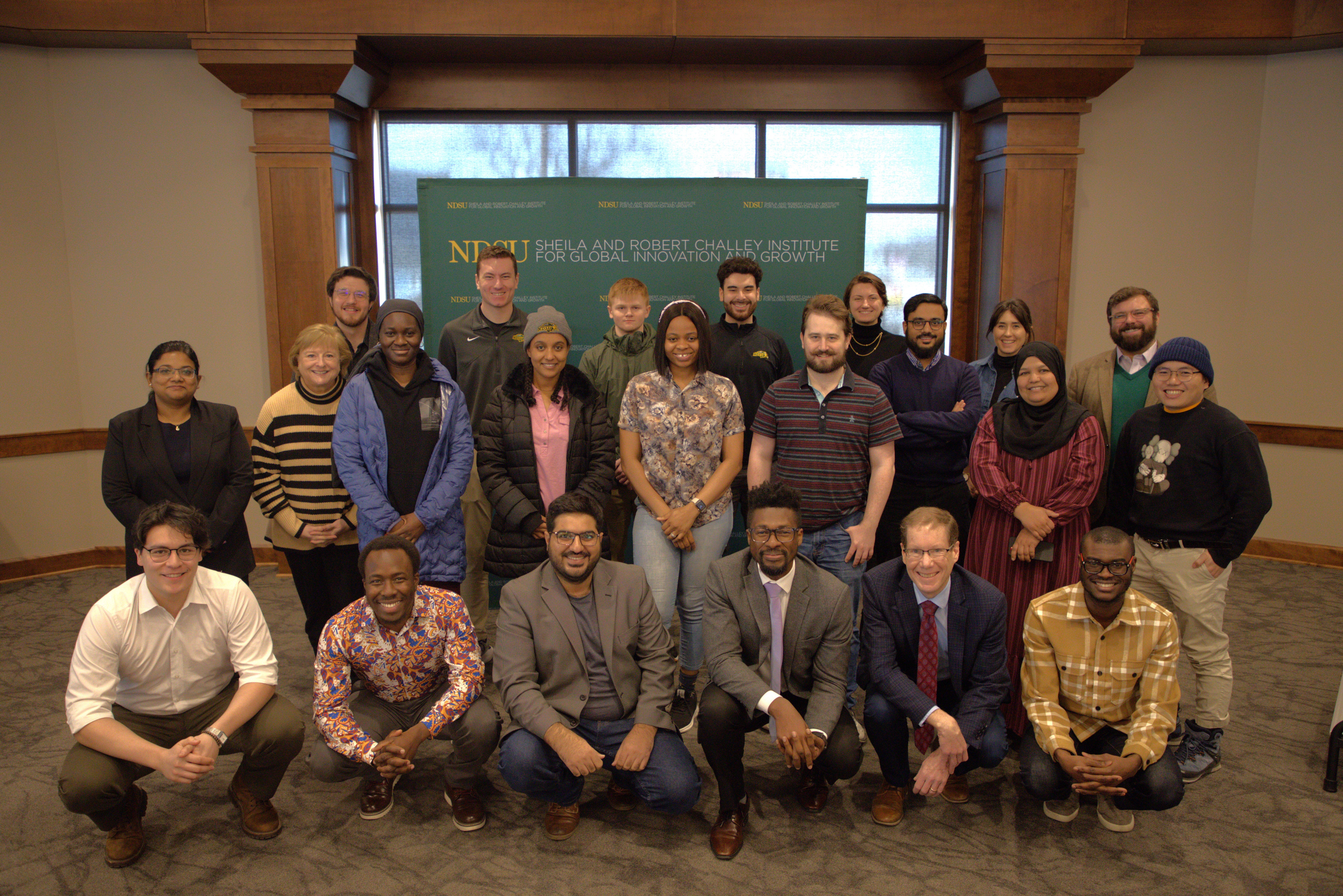In today's world, digital platforms have become a breeding ground for division and siloed thinking. To address this issue, the Challey Institute at North Dakota State University and the Mercatus Center at George Mason University collaborated to organize a groundbreaking event. The Pluralist Lab was a highly engaging and interactive workshop designed to cultivate a culture of respectful dialogue and create an environment where individuals and communities with differing opinions and perspectives can come together to build mutual understanding.
The event was carefully curated and brought together diverse undergraduate, graduate, and Ph.D. students from various backgrounds, including Computer Science, Biomedical Engineering, and Philosophy. The half-day workshop was structured around the importance of listening, the art of constructive criticism, and the power of empathy. The participants were encouraged to engage in respectful dialogue, share their perspectives and experiences, and learn from each other.
The workshop represented a critical step towards bridging societal divides, promoting mutual understanding, and fostering a culture of respectful dialogue at North Dakota State University.
Cultivating a Culture of Understanding Through Dialogue
The ambition of the Pluralist Lab was both profound and pivotal: to nurture the capacity for civil discourse among students with divergent views. Recognizing the potential for disagreement to devolve into divisiveness, the workshop was conceived as a space where the art of conversation could flourish, fostering a spirit of pluralism and mutual respect.
The lab was not just about facilitating dialogue but also about transforming how students approach complex and polarizing topics. By encouraging students to engage with those who hold different opinions, the lab sought to broaden their horizons, challenge their assumptions, and develop critical thinking skills. Through difficult discussions, the lab provided students with the tools and techniques to navigate disagreements, find common ground, and communicate effectively.
Innovative Engagement
The methodology of the Pluralist Lab was as innovative as its objectives. By employing colored paddles to signal agreement, disagreement, or neutrality, the workshop transcended traditional debate formats. This approach facilitated a dynamic exchange of perspectives, where participants were encouraged to not only articulate their viewpoints but also genuinely consider and reflect upon the views of others. By engaging in this exercise, participants could break down preconceptions and open their minds to the nuanced realities of complex issues. This exercise is a powerful tool for breaking down prejudices and opening minds to the subtle realities of contentious matters.
Fostering Empathy and Active Listening
The Pluralist Lab had a significant impact on the participants in various ways. The workshop highlighted the importance of empathy and active listening in constructive conversations. It taught the attendees that engaging with opposing viewpoints is not just about conceding to the other side but about comprehending the complexities of an issue from multiple perspectives. This realization was a crucial departure from the typical win-lose mindset often dominating contentious discussions.
Community and Continuity
The immediate outcomes of the Pluralist Lab were encouraging. Feedback from participants highlighted a newfound appreciation for civil discourse and a keen interest in continuing these conversations. The sense of community that emerged from the workshop, with participants extending discussions beyond the formal setting, underscored the potential for dialogue to foster lasting connections and understanding.
The Challey Institute's commitment to making the Pluralist Lab a recurring event at NDSU reflects a broader vision for the university as a hub of diverse thought and respectful exchange. By institutionalizing this initiative, NDSU signals its dedication to preparing students for the complexities of the modern world, where the ability to engage in civil discourse is increasingly indispensable.
The Future of Civil Discourse at NDSU
The Pluralist Lab's inaugural session at North Dakota State University has elicited an overwhelmingly positive response from participants, with their feedback underscoring the value of such initiatives and pointing the way forward.
One participant echoed the collective sentiment, "This should be tried with another group of people," highlighting the potential for broader impact. The appreciation for effective moderation was clear, as another attendee remarked, "I was grateful for the conversation with Ben Klutsey and his moderation of our table!" Such comments underscore the importance of skilled facilitation in nurturing productive dialogue.
A common request among the feedback was for more opportunities to engage in similar discussions: "Can we have more pluralist labs?" and "More of these activities," suggest a strong desire for continued and expanded dialogue initiatives.
This feedback articulates a vision for civil discourse initiatives to enhance student patience, coexistence, and adaptability, emphasizing the transformative potential of these discussions.
Charting a Path Forward
Looking ahead, the success serves as a blueprint for similar initiatives aimed at bridging divides and enriching the fabric of society through dialogue. The workshop's innovative approach to fostering understanding and respect across differences offers valuable lessons for other institutions and communities seeking to counteract polarization and build a more inclusive society.
In a time characterized by division, the Pluralist Lab stands as a testament to the power of empathy, respect, and open-mindedness. By championing these values, NDSU contributes to a broader movement towards a world where common ground is sought and celebrated. Through initiatives like the Pluralist Lab, we are reminded that even in the face of deep-seated differences, the potential for unity and understanding remains within even in the front of deep-seated differences.



